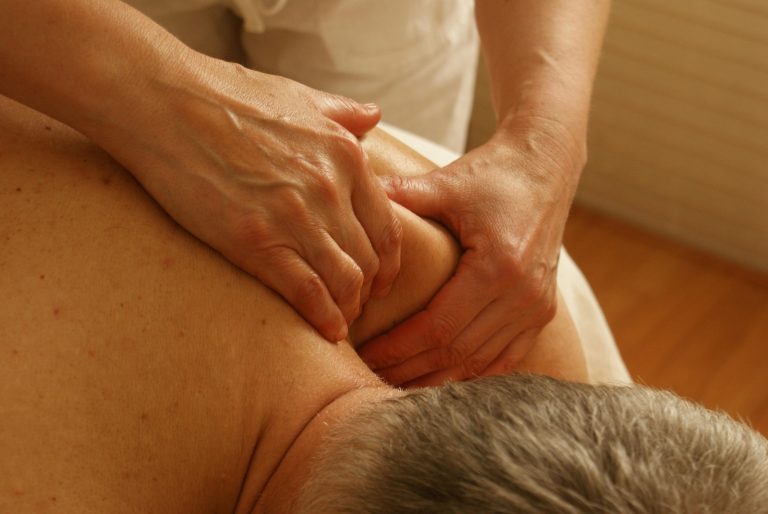How Physiotherapy can offer Relief for Headaches and Migraines
Here at summit physiotherapy, we often tackle individuals’ chronic headaches and migraines. We want to spread awareness to the musculoskeletal causes of headaches and how we can help you to relieve that pain.
AN Overview
Headaches and migraines are extremely common, but not many people are aware of the musculoskeletal link to them. This article will highlight the connection between musculoskeletal imbalances and the onset of headaches and migraines.
Headaches and migraines, often overshadow the underlying musculoskeletal factors contributing to their occurrence. However, tension, trigger points, and postural misalignments are contributors to headaches and migraines. Tension within the muscles of the neck, shoulders, and jaw serves as a precursor to headaches and migraines. These areas, often neglected in discussions surrounding the contributing factors of headaches. Furthermore, the interplay between poor posture, stress, and repetitive movements are usually the main causes, exacerbating musculoskeletal issues and triggering debilitating headaches. Yet, despite their profound influence, these factors frequently evade detection in traditional approaches to headache management.
Understanding the Link

Tension within the muscles of the neck, shoulders, and jaw can contribute to the onset and severity of headaches and migraines. The muscles of the neck, shoulders, and jaw are intricately interconnected, forming a network that supports the head and facilitates movement. However, when tension forms within this network, it triggers physiological responses that culminate in headaches and migraines.
One of the primary causes behind this tension is the presence of trigger points—hyperirritable nodules within muscle fibres that elicit pain and discomfort.
These trigger points, often referred to as “knots,” arise due to a variety of factors, including repetitive movements, poor posture, and stress. When activated, they send signals of distress to the brain, exacerbating pain sensitivity and contributing to the development of headaches and migraines.
Furthermore, muscle tension within the neck, shoulders, and jaw can lead to structural imbalances and postural misalignments, placing undue strain on surrounding tissues and exacerbating discomfort. This strain can manifest in the form of muscle stiffness, restricted range of motion, and referred pain, further amplifying the severity and frequency of headaches and migraines. The jaw plays a significant role in this complex interplay, as tension within the temporomandibular joint (TMJ) can radiate pain to the head and neck region, triggering or intensifying headaches and migraines.
Techniques to ease headaches/migraines
MANUAL THERAPY TECHNIQUES:
Hands-on interventions, such as massage, myofascial release, and joint mobilisations, target trigger points and release tension within the muscles of the neck, shoulders, and jaw. By applying precise pressure and manipulation techniques, physiotherapists alleviate discomfort and restore mobility, promoting optimal musculoskeletal health.
POSTURAL CORRECTION AND ERGONOMICS :
Physiotherapists offer personalised guidance on improving posture and optimising ergonomic setups in work and daily activities. By addressing underlying postural issues and providing ergonomic advice, they empower individuals to adopt healthier habits and reduce strain on the musculoskeletal system, thereby mitigating headache triggers.

Optimising your desk setup is crucial for maintaining good posture. Start by adjusting your chair so your feet are flat on the ground and your knees are at a 90-degree angle. Position your keyboard and mouse within easy reach and keep your monitor at eye level to prevent neck strain. Choose a chair with adequate lumbar support to maintain the natural curve of your spine. Remember to take regular breaks to stretch and move around, ensuring flexibility and preventing stiffness. These simple ergonomic adjustments create a workspace that promotes comfort, productivity, and overall well-being.
EXERCISE PRESCRIPTION:
Tailored exercise programs focus on strengthening weak muscles, improving flexibility, and enhancing overall body mechanics. Through targeted exercises that target specific muscle groups and promote proper alignment, physiotherapists help individuals address underlying musculoskeletal imbalances and fortify their bodies against future episodes of headaches and migraines.

Stress Management and Relaxation Techniques:
Various methods are employed to alleviate tension and promote well-being. Breathing exercises, such as diaphragmatic breathing or progressive muscle relaxation, serve to induce a state of calm by focusing attention on the breath and releasing physical tension.
Mindfulness and meditation practices are also effective tools, guiding individuals to cultivate present moment awareness and manage stress responses by observing body sensations and thoughts without judgment. Additionally, biofeedback technology aids in teaching patients to regulate physiological responses like heart rate and muscle tension, thereby addressing conditions such as headaches and migraines. These approaches collectively empower individuals to proactively manage stress, fostering a greater sense of relaxation and overall health.
Preventative Strategies:
Physiotherapy emphasises a proactive approach to headache and migraine management, focusing on preventative strategies to reduce the frequency and severity of episodes. Through education on lifestyle modifications, ergonomic principles, and self-care techniques, physiotherapists encourage individuals to take charge of their health and minimise the risk of future headaches and migraines. By combining targeted interventions with preventative strategies, physiotherapists provide a roadmap to relief and a path towards long-term headache management.
Conclusion:
In conclusion, the intricate connection between musculoskeletal issues and headaches/migraines underscores the importance of addressing underlying imbalances to achieve lasting relief. Tension within the muscles of the neck, shoulders, and jaw, along with trigger points and postural issues, serves as potent precursors to headaches and migraines, perpetuating a cycle of discomfort and dysfunction.
Physiotherapy offers a comprehensive approach to managing and preventing headaches. Through tailored interventions such as manual therapy techniques, postural correction, exercise prescription, and relaxation techniques, physiotherapists target the root causes of headaches and migraines, promoting optimal musculoskeletal health and empowering individuals to reclaim control over their well-being.
By combining targeted interventions with preventative strategies, physiotherapy provides a roadmap to relief and a path towards long-term headache management. It emphasises a proactive approach to care, focusing on lifestyle modifications and self-care techniques to minimise the risk of future episodes.

We encourage readers to consult with Summit physiotherapy for personalised assessment and treatment recommendations. Our team of experienced practitioners provide individualised care and support, guiding you on your journey towards optimal musculoskeletal health and freedom from the burden of headaches and migraines. Take the first step towards relief and schedule your consultation today.
If you wish to seek further help or speak to a practitioner about any of the above, call us on 0800 731 2738 or book online here.
You can also view all the services we provide within our clinics on our website, as well as checking out our other blogs and content.
For more free tips and information, make sure to follow our Facebook and Instagram pages. We also post client stories, so you can see how we’ve helped people get back to doing the things they enjoy!



